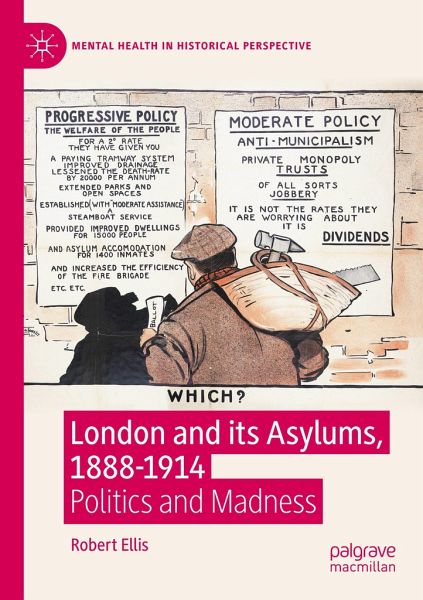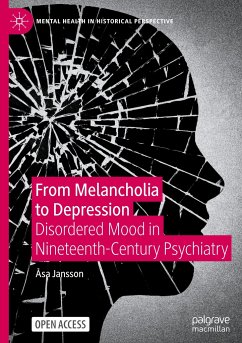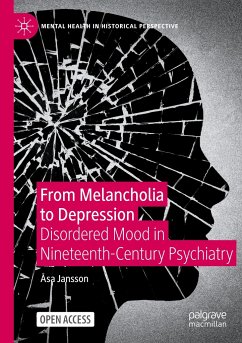
London and its Asylums, 1888-1914
Politics and Madness
Versandkostenfrei!
Versandfertig in 6-10 Tagen
76,99 €
inkl. MwSt.
Weitere Ausgaben:

PAYBACK Punkte
38 °P sammeln!
This book explores the impact that politics had on the management of mental health care at the turn of the nineteenth and twentieth centuries. 1888 and the introduction of the Local Government Act marked a turning point in which democratically elected bodies became responsible for the management of madness for the first time. With its focus on London in the period leading up to the First World War, it offers a new way to look at institutions and to consider their connections to wider issues that were facing the capital and the nation. The chapters that follow place London at the heart of inter...
This book explores the impact that politics had on the management of mental health care at the turn of the nineteenth and twentieth centuries. 1888 and the introduction of the Local Government Act marked a turning point in which democratically elected bodies became responsible for the management of madness for the first time. With its focus on London in the period leading up to the First World War, it offers a new way to look at institutions and to consider their connections to wider issues that were facing the capital and the nation. The chapters that follow place London at the heart of international networks and debates relating to finance, welfare, architecture, scientific and medical initiatives, and the developing responses to immigrant populations. Overall, it shines a light on the relationships between mental health policies and other ideological priorities.














